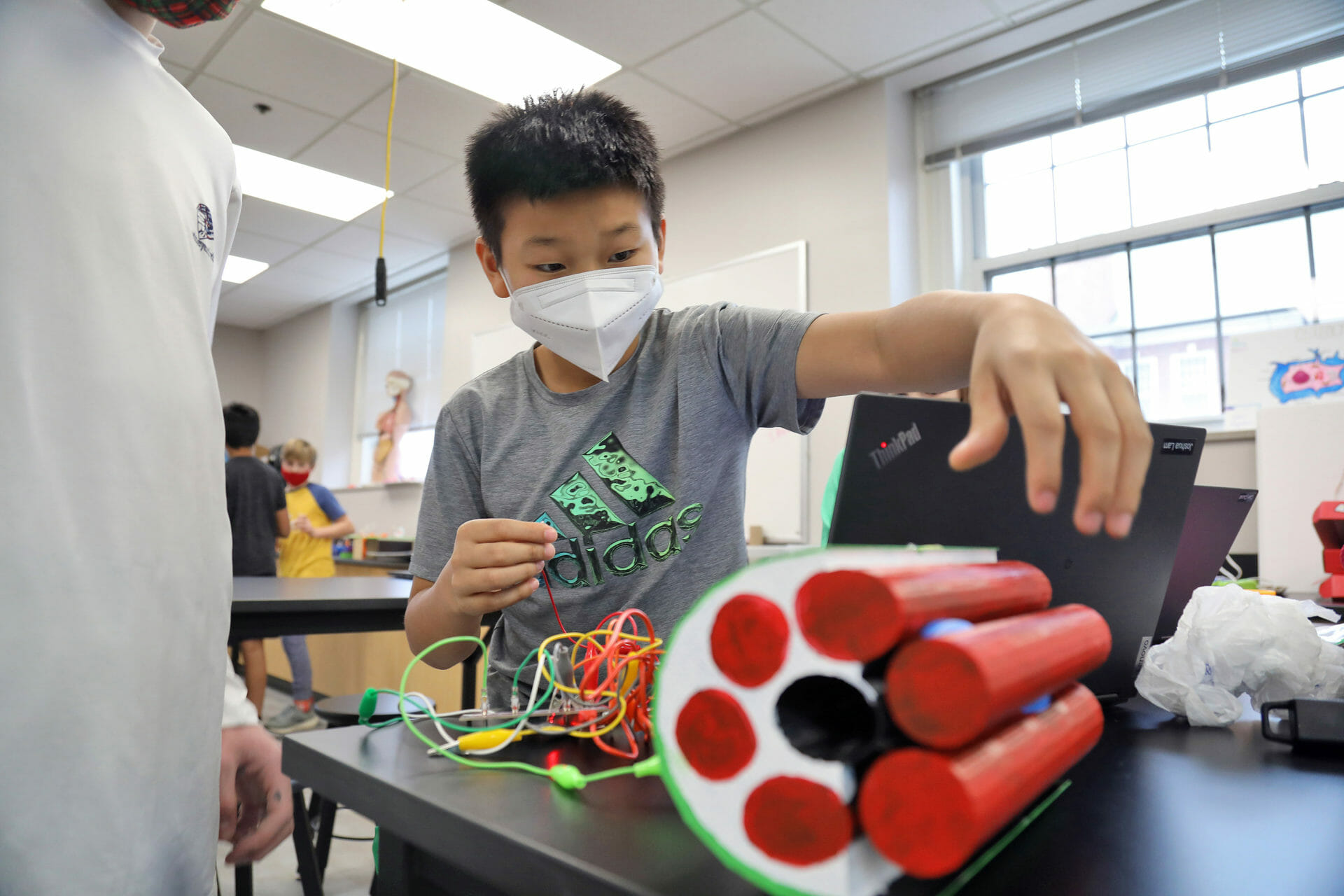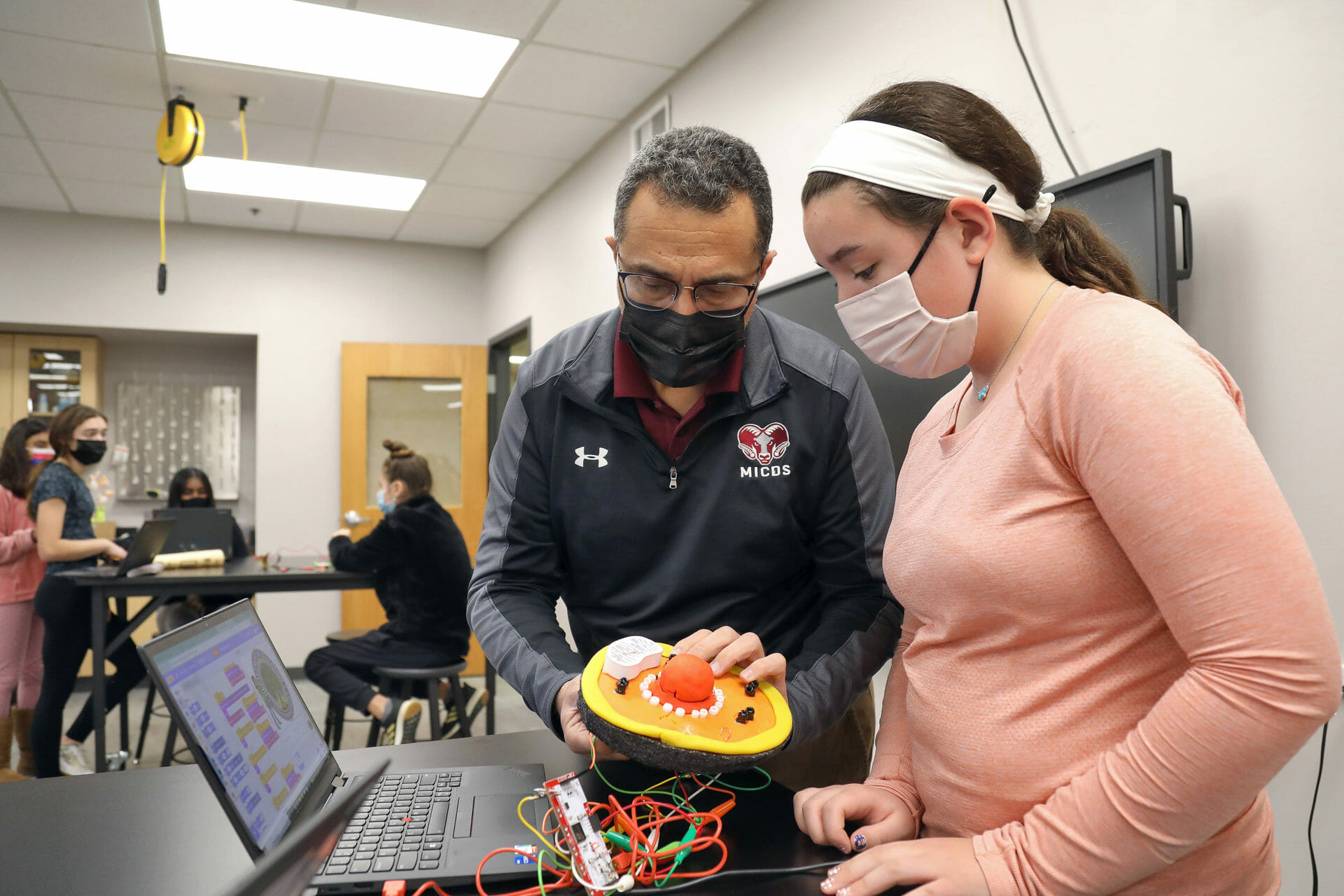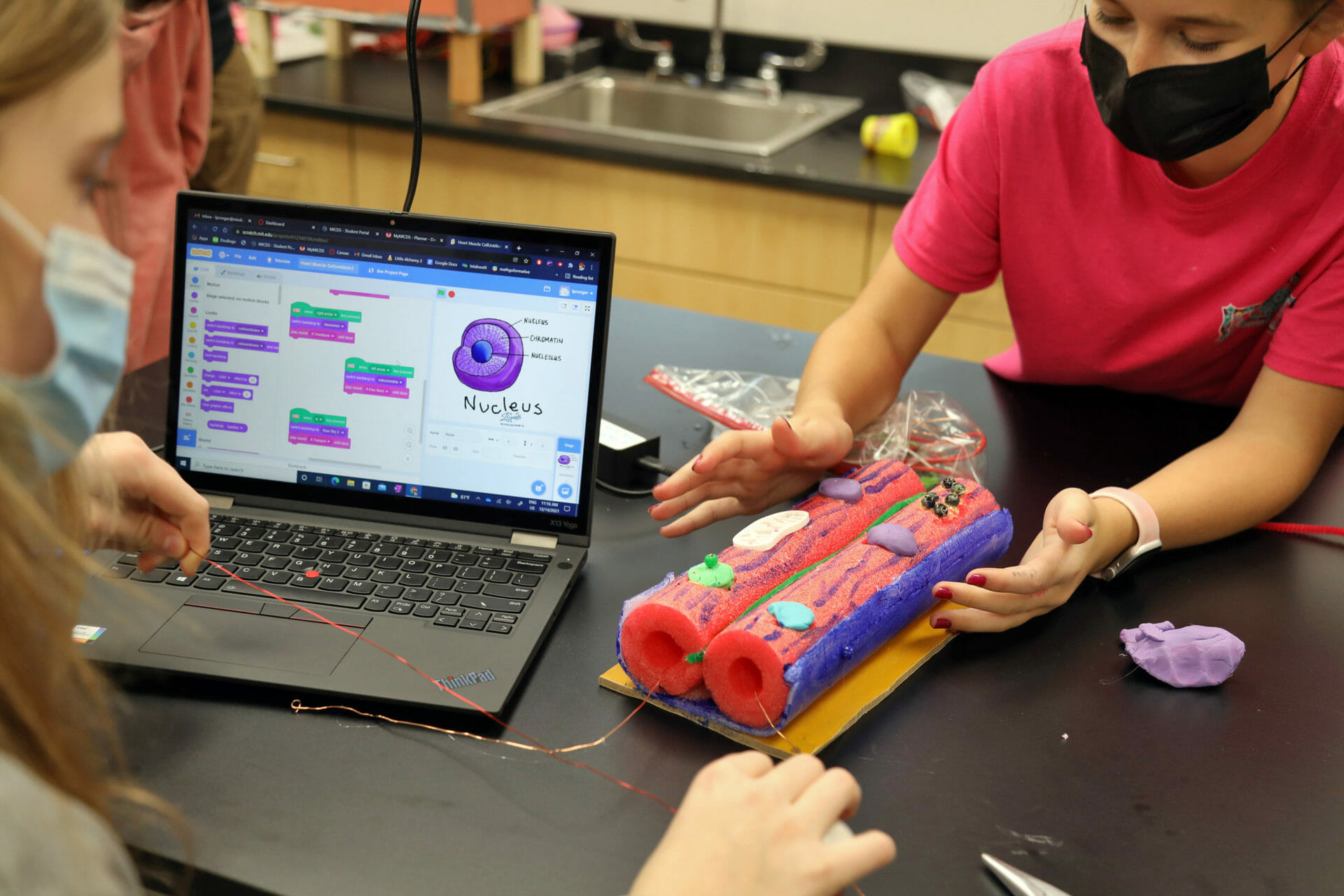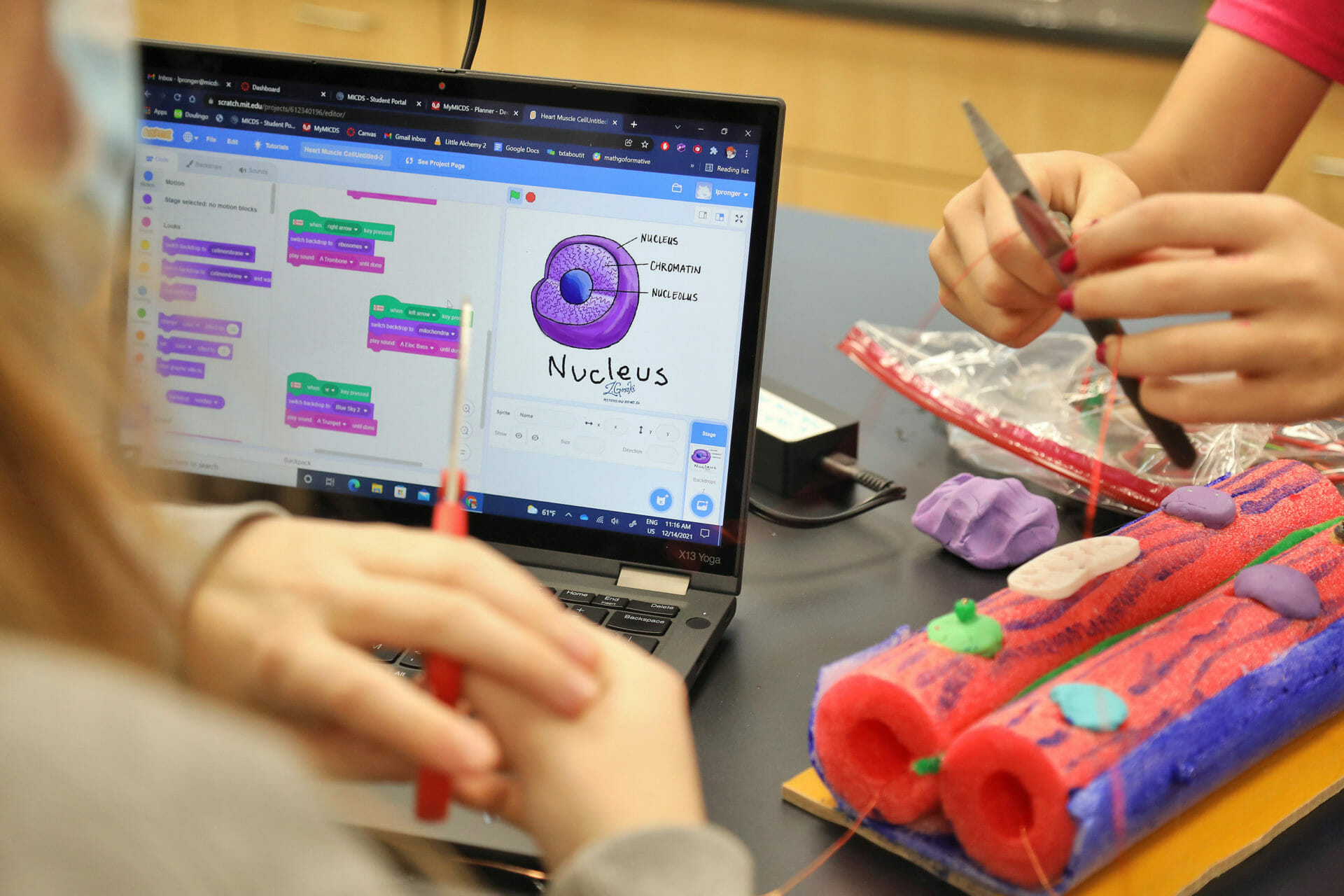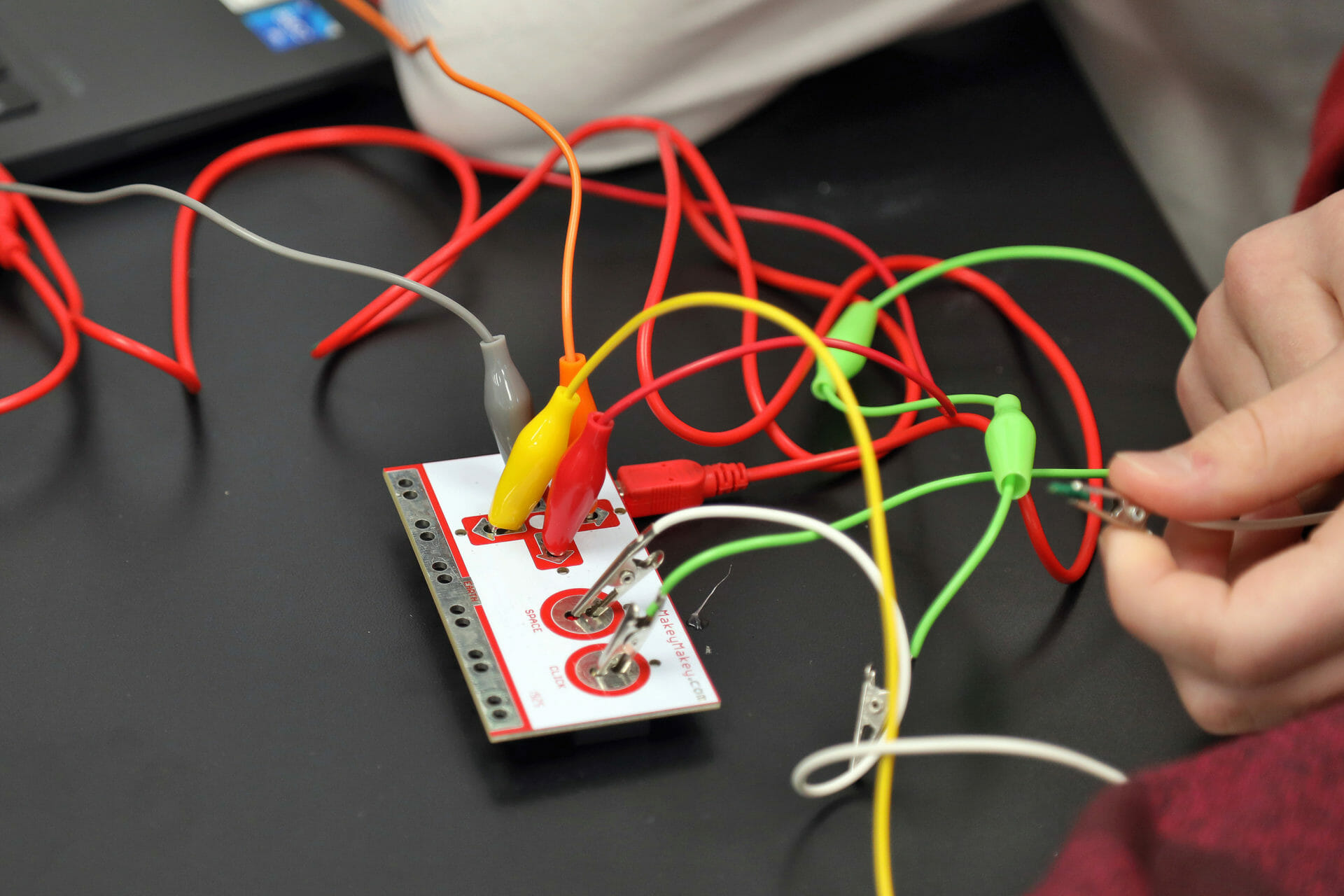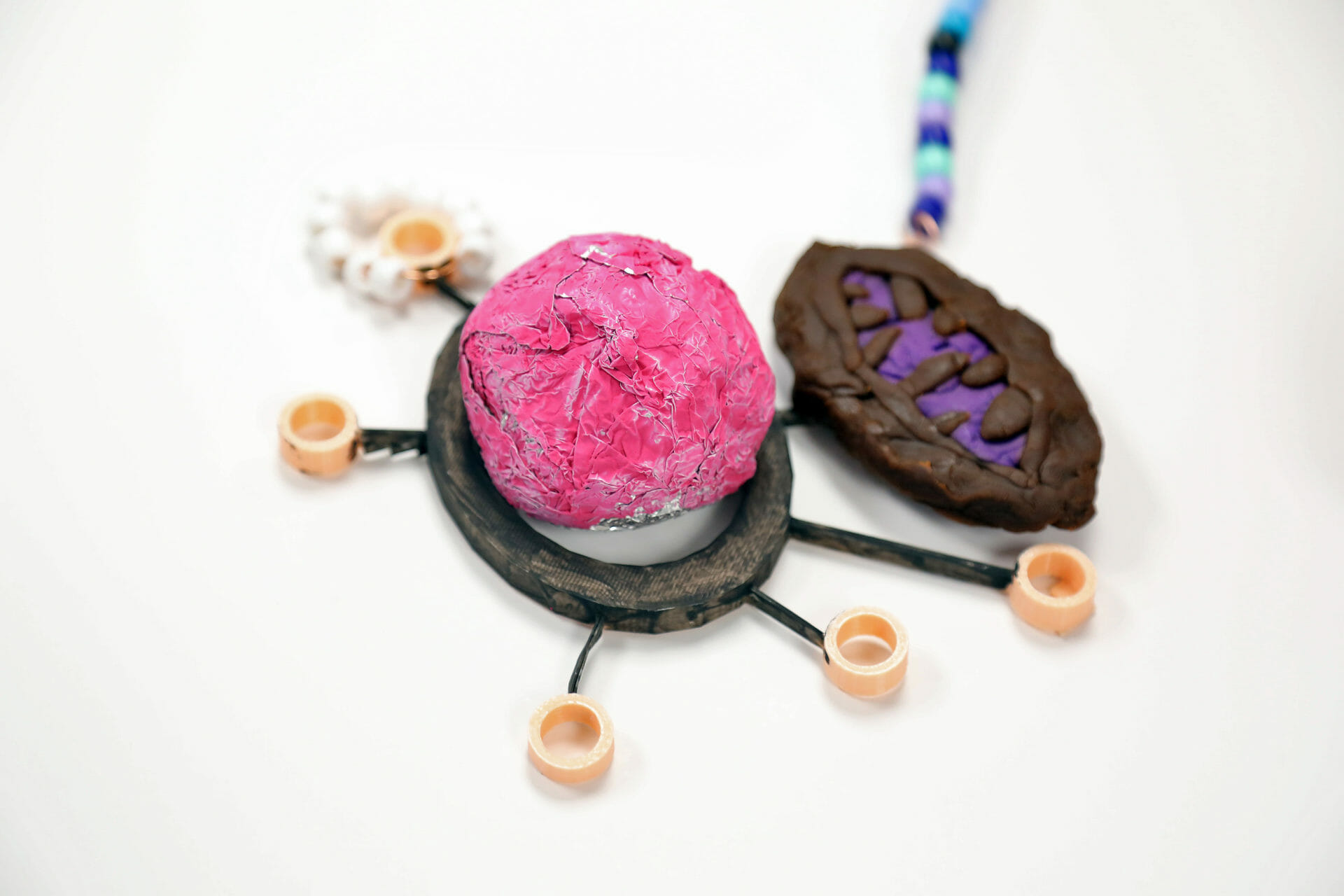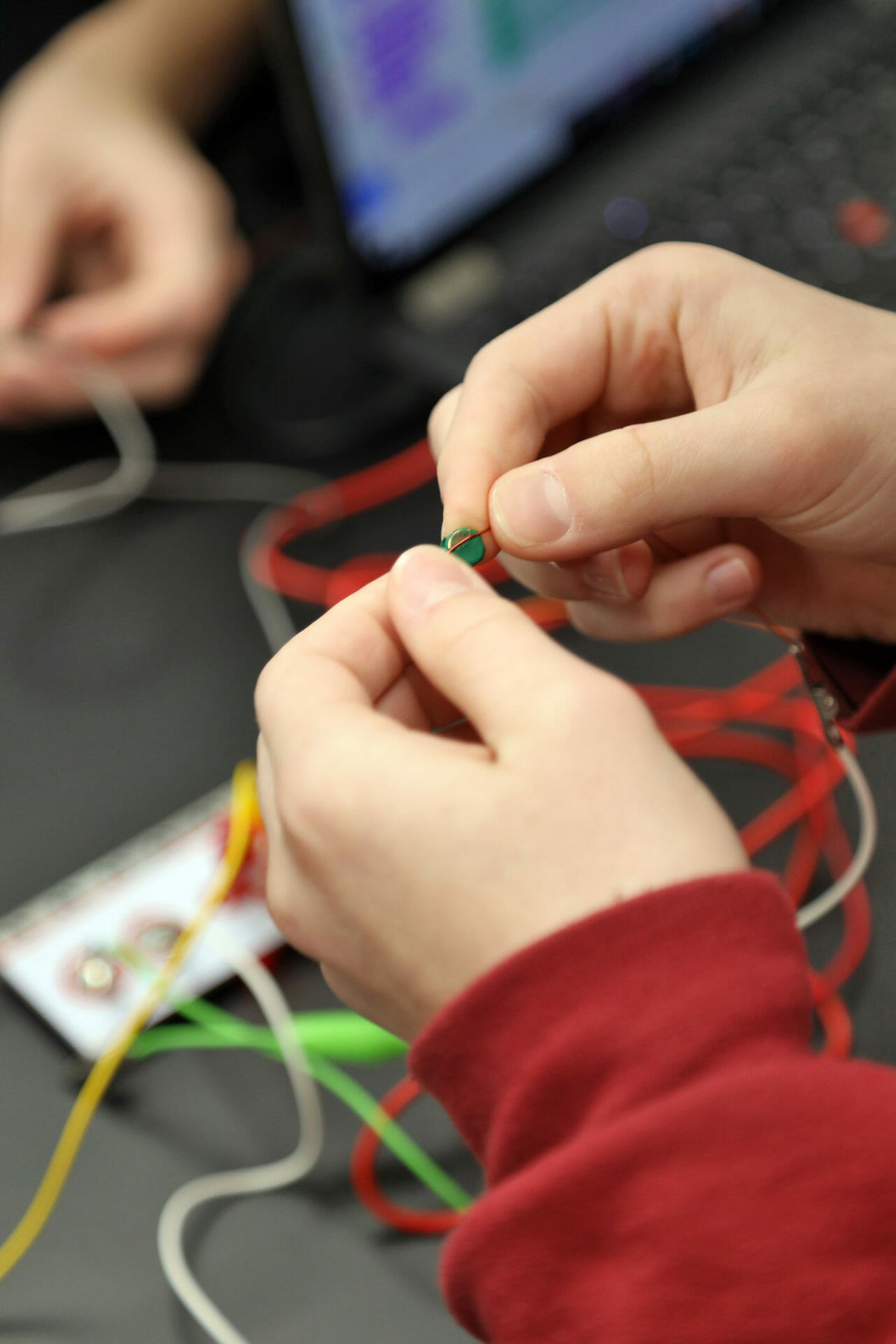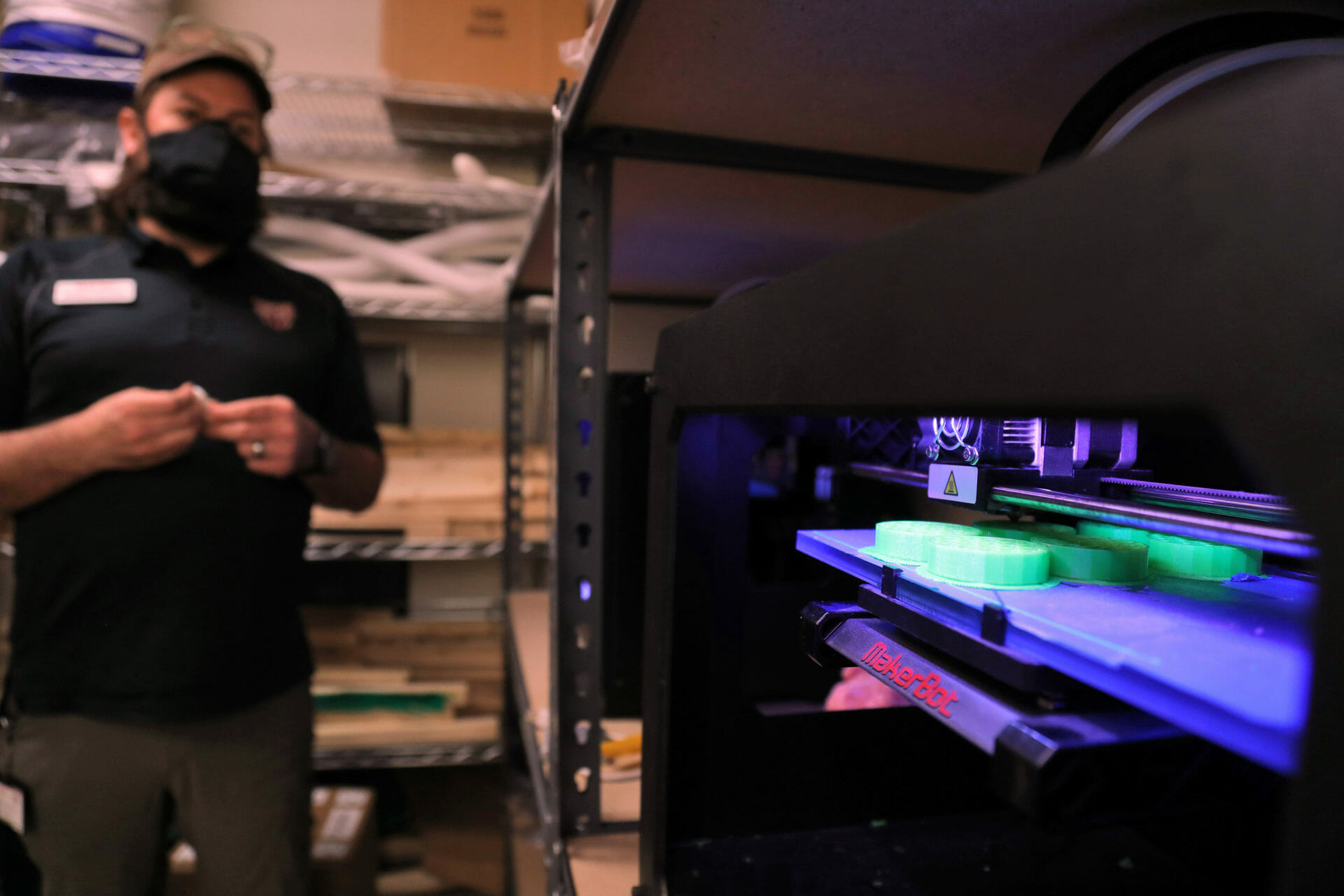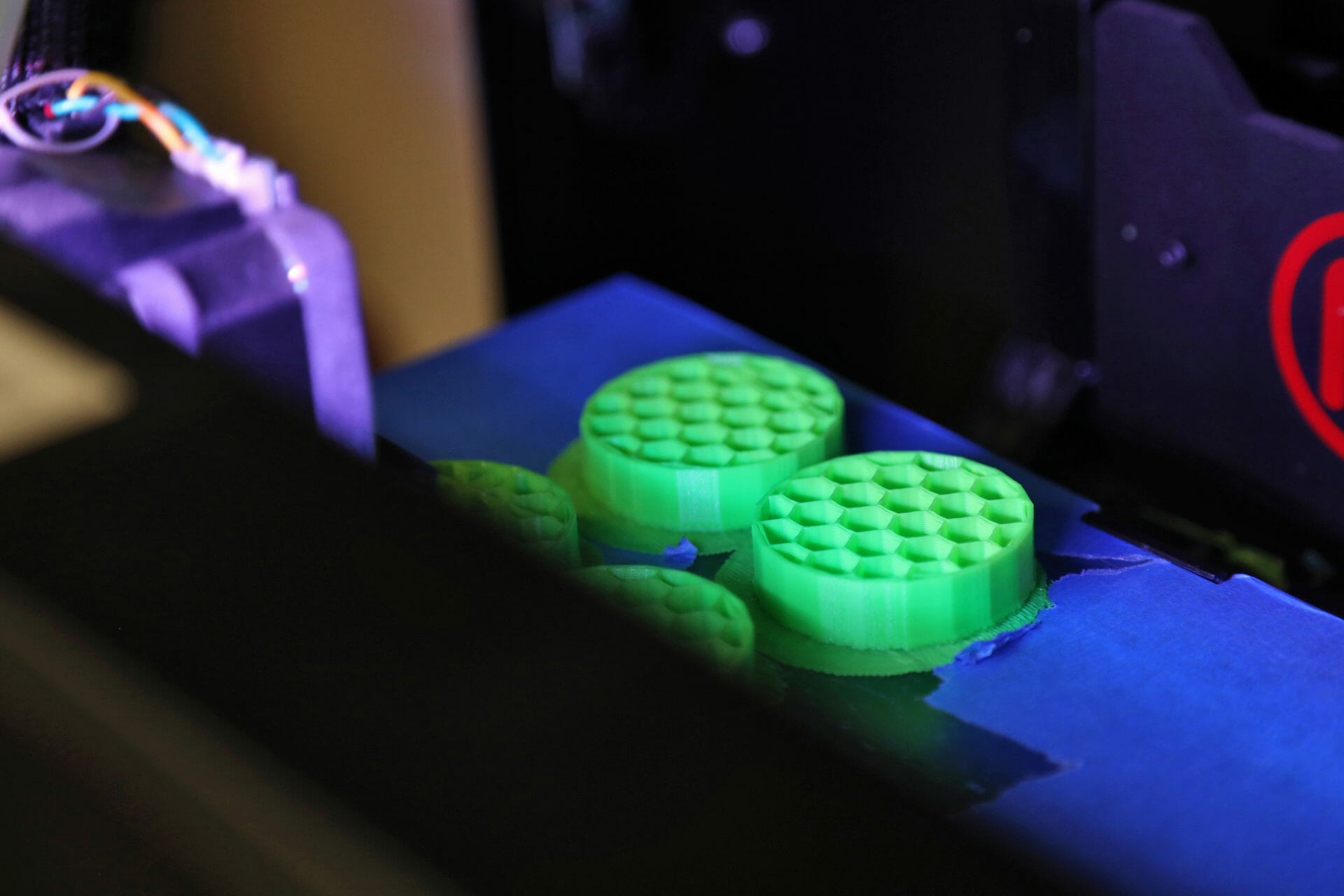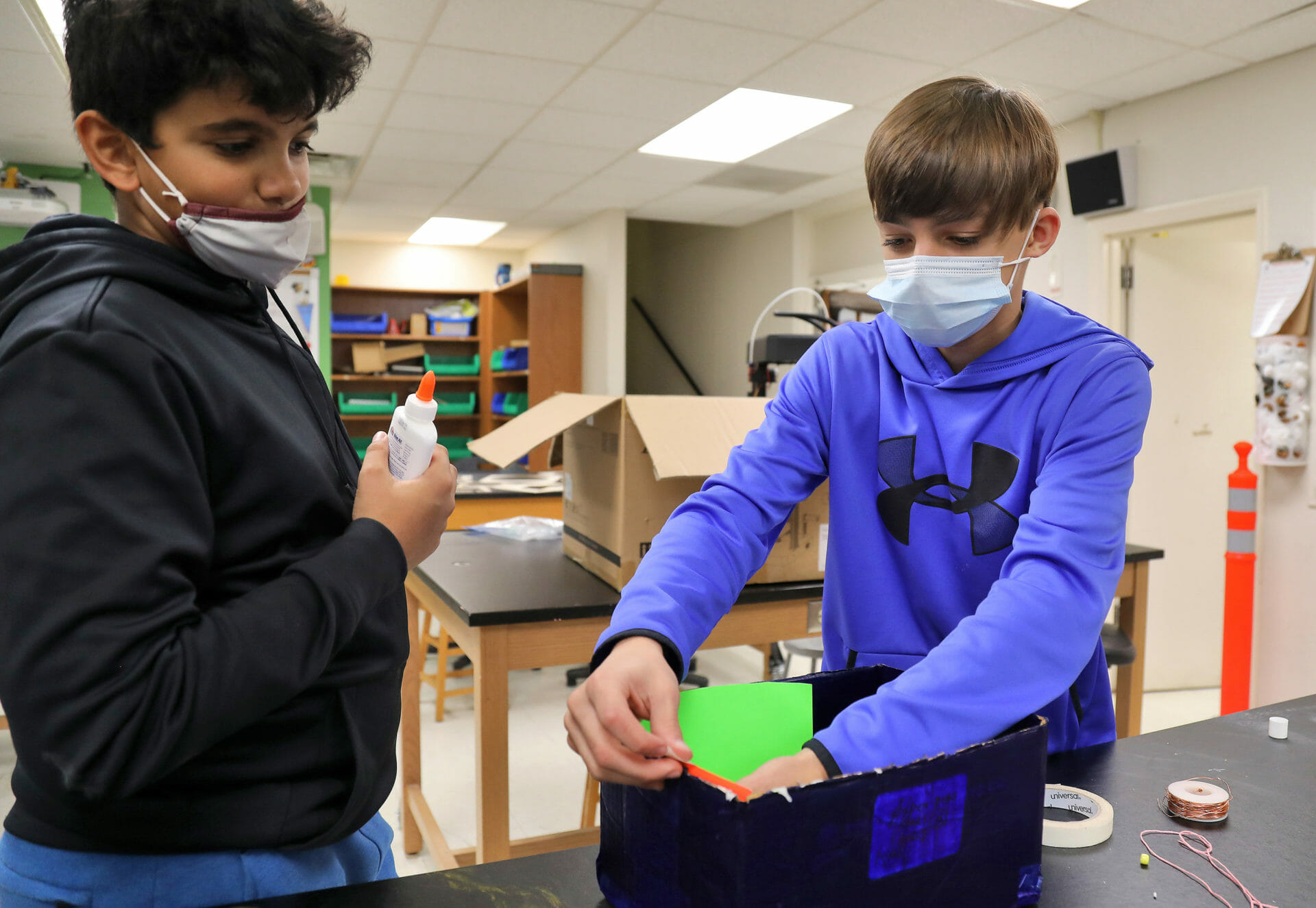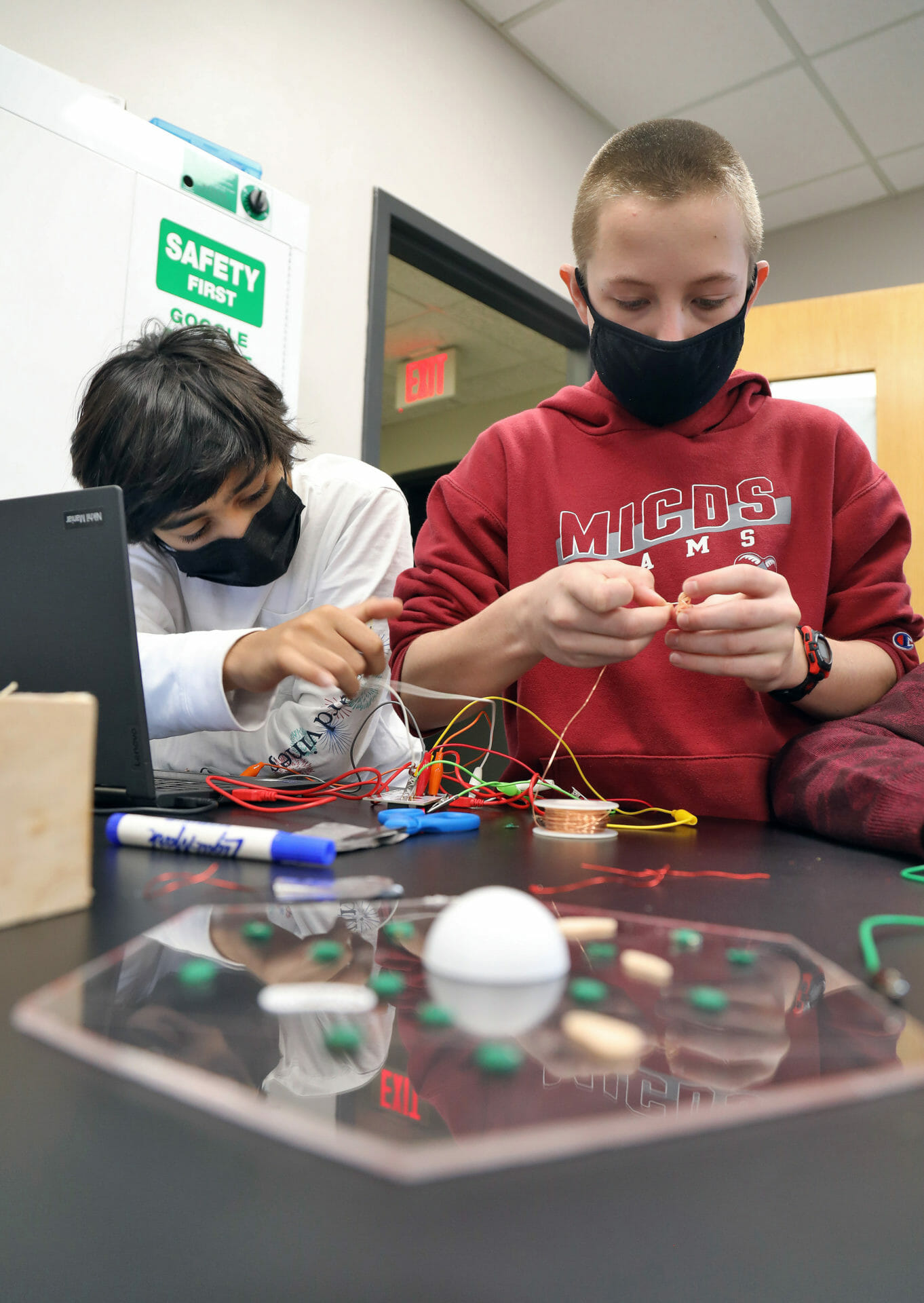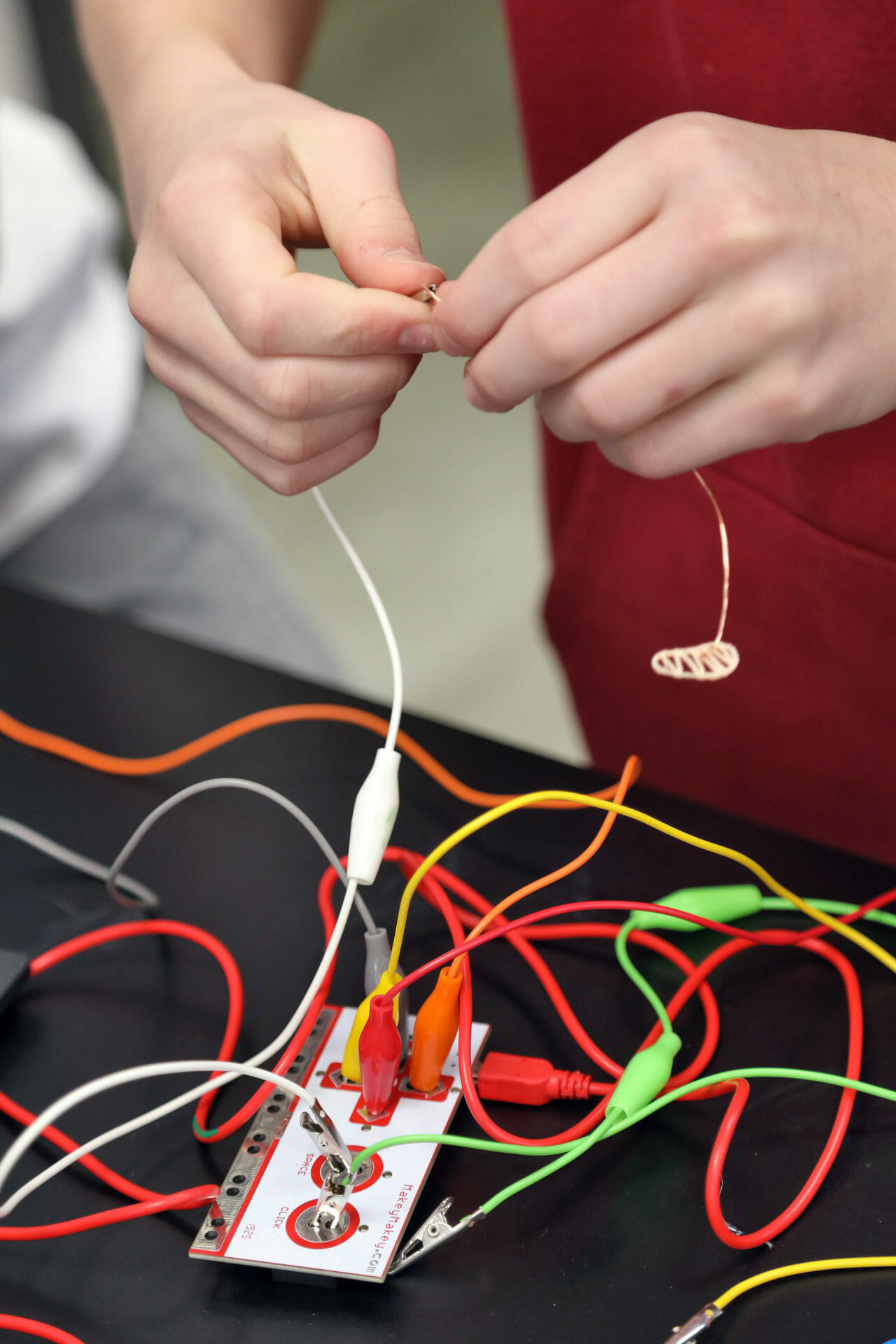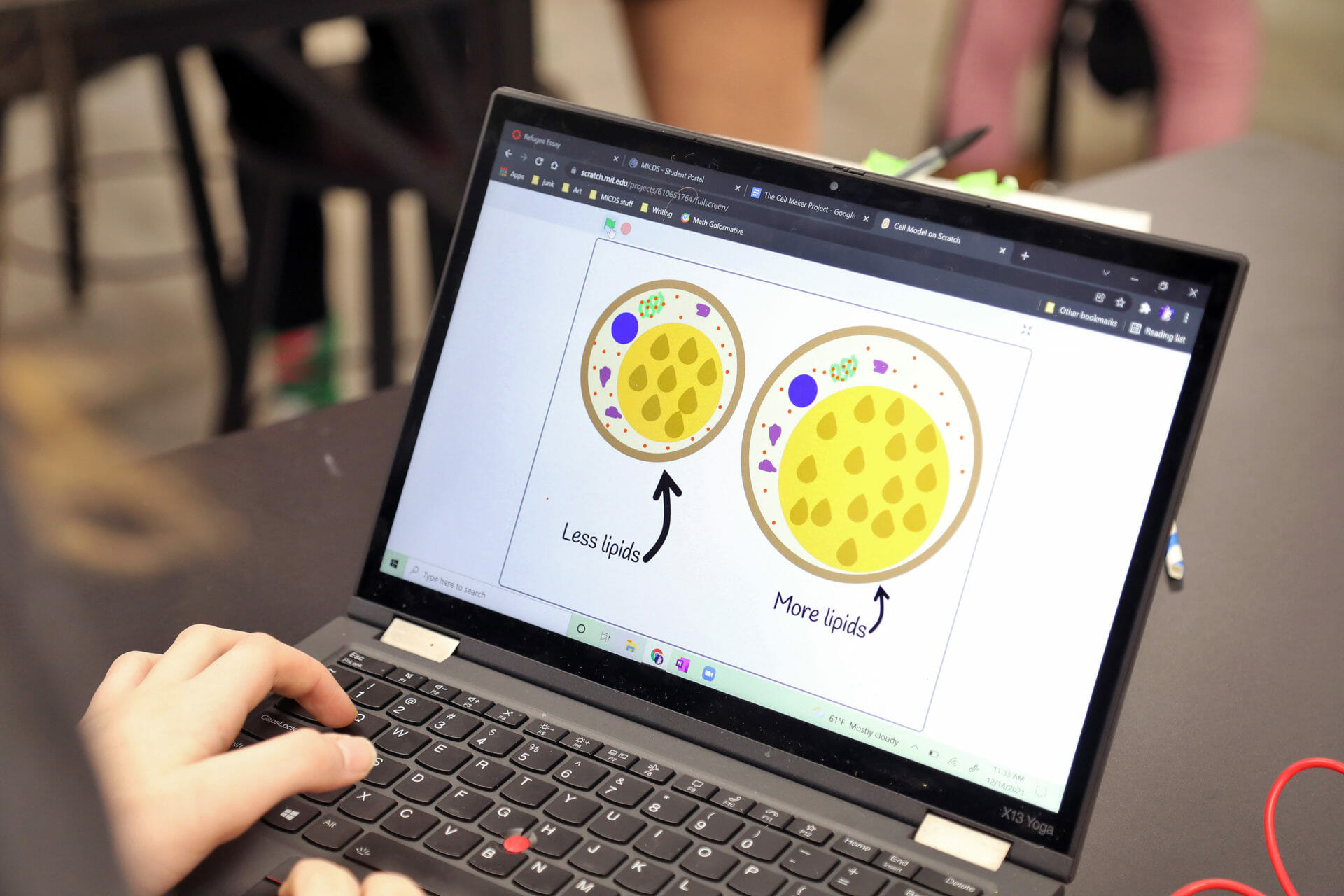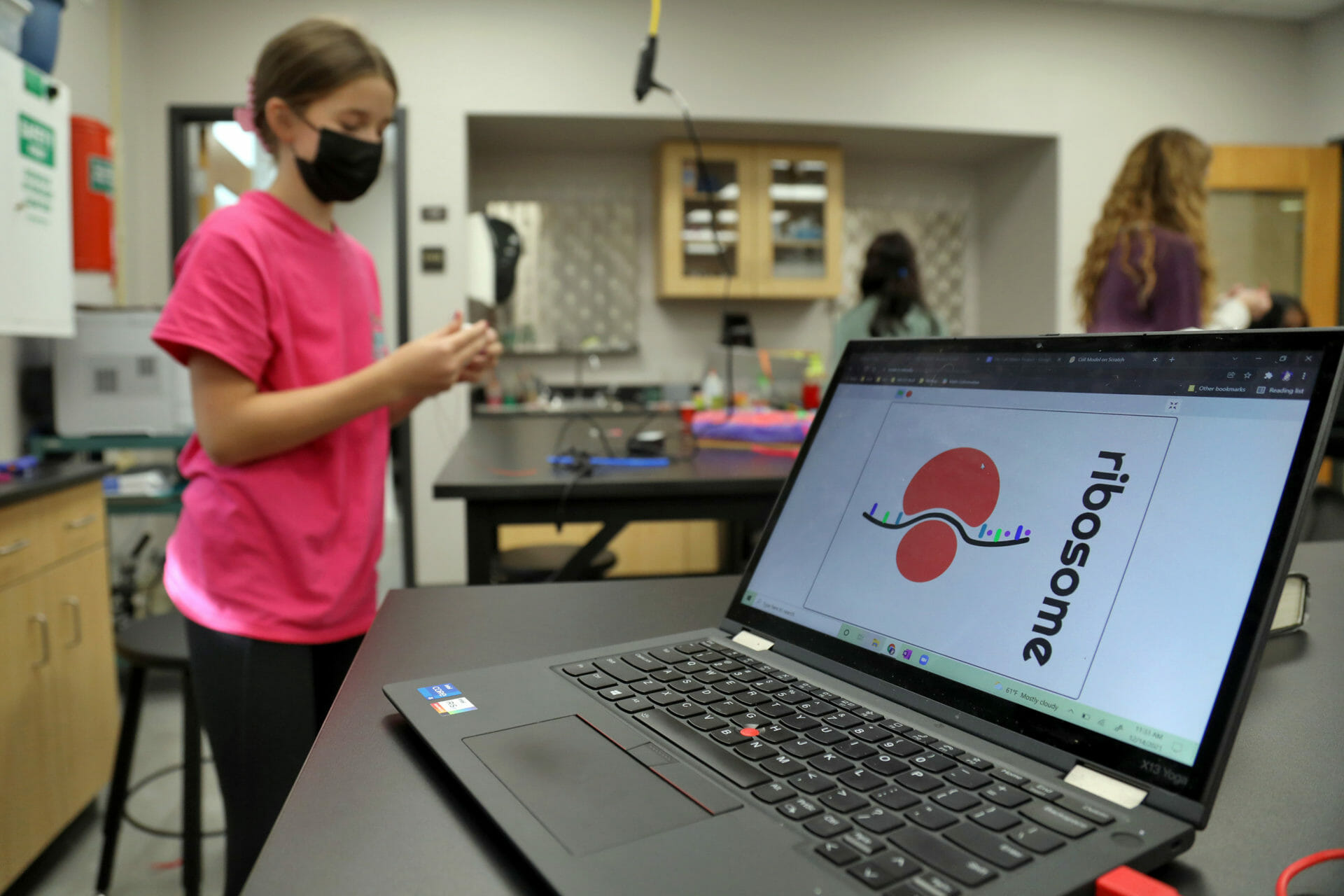Seventh-grade science students have been studying body systems since the beginning of the academic year. For this unit, the classes have been studying cells specifically. Students researched some of the more common organelles found inside our body cells as well as how the cells obtain energy through cellular respiration. Organelles, or « little organs, » are specialized structures that perform various jobs inside cells. In the same way organs such as the heart, liver, stomach, and kidneys serve specific functions to keep an organism alive, organelles serve specific functions to keep a cell alive.
For example, a nucleus is a large organelle that stores DNA and serves as the cell’s command center. Another large organelle is the mitochondrion, which makes ATP, a chemical that organisms use for energy. Other organelles like lysosomes are responsible for digesting and recycling toxic substances and waste. Lysosomes are produced by a larger organelle called the Golgi complex, which manufactures other cellular machinery as well. There’s a whole world of organelles to explore in the human body!
Students chose a type of body cell in which to build an educational interactive model. They shared their research of organelles and cellular respiration using Scratch (coding using blocks of code) and Makey Makey (electrical wiring which interacts with Scratch). Makey Makey lets you transform everyday objects into computer interfaces. It’s a little USB device that plugs into a computer, that students can use to make their own switches that act like keys on the keyboard: Make + Key = Makey Makey.
Students model their specialized cell from materials that can and cannot conduct electricity in order to make their model interactive. In doing so, they have to use cooperation in a group, knowledge of cells, electricity, and block coding. Grant Krainik ’27 thinks the project was interesting and enjoyed making the model. He learned three valuable lessons: « 1. Play-dough is conductive. 2. Just how small the cells actually are. 3. Hot glue does miracles. »
Our student-scientists were required to do a reflection journal at the end of each class period to think about what was accomplished and set the goals for the next class period.
Lola Compton ’27 said, « During this project we learned about some specialized cells and what their purpose is. We also refreshed ourselves on the organelles of eukaryotic cells like animal and plant cells. My personal favorite part of the project is either the coding on Scratch or building the model. »
« I really enjoyed being able to see how the makey makey comes to life, » said Frances Applegate ’27. « I also loved figuring out how everything has to be perfect to work. »
« Although science is our subject and the students are sharing their knowledge of what they have learned, the process of working with others and breaking a large project into smaller, manageable goals are skills that they practice, » said Michelle Bouchard, Middle School Science Teacher. « In addition, the same process that engineers, other designers, and scientists use of sometimes failing at their original design and having to problem solve and redesign is implemented. Watching and listening to the students problem-solve is probably my favorite piece of the whole project. »
Mare Willie ’27 said, « I really enjoyed the project. It was really amazing to be able to code a model, to create something that could attach with wires to my computer. I use Scratch quite often, but it was totally new and fun to connect it with something I could touch and feel, something that wasn’t just digital. »
« What I learned from the Makey Makey project is that it is possible to have fun while coding and creating an interactive project, » said Maahi Saini ’27. « I learned way more this way than I might have learned from a lecture or just reading a book. Because of this, it made this project actually fun. I really enjoyed the hands-on learning and how you got to create a model and connect it to a computer where you can code and apply your learning. I really enjoyed this project, and I would definitely recommend it! »
